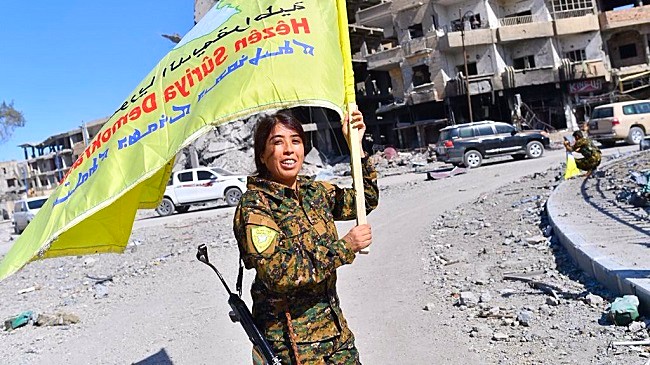
In early June, Kurdish and Arab rebel forces with the support of the United States initiated a campaign to reclaim the Syrian city of Raqqa, by then the de facto capital of ISIS in the war-torn country. Experts assumed the ensuing battles would take several months to accomplish their stated purpose, and sure enough and over four months later, Raqqa is no longer under the Islamic State’s control. According to Reuters, witnesses reported the U.S.-backed militias had raised one of many flags across the city in its dilapidated stadium, thereby signaling the end of the campaign. Raqqa, it seems, is finally free.
Subsequent reports by the New York Times and other outlets confirmed the news, but stressed Raqqa’s reclamation wasn’t yet a complete victory:
Officers with the Syrian Democratic Forces, an American-backed militia group made up of Syrian Kurds and Arabs, said by phone and in press statements that they had taken control of the city after a monthslong campaign, although the United States Central Command stopped short of declaring victory, saying that fighters were checking to make sure all areas were clear.
This includes clearing the city of “IEDs and booby traps in and amongst the areas that ISIS once held,” per coalition spokesperson Colonel Ryan Dillon, adding: “The [Syrian Democratic Forces] will continue to clear deliberately through areas.” Aside from these and other difficult tasks that remain, however, anti-ISIS efforts in the region remain as complex as ever. Conflicting reports during the past few months have indicated ISIS leader Abu Bakr Al-Baghdadi was killed, and then not killed. And while Raqqa appears to be free of Al-Baghdadi and his followers’ presence, ISIS remains a major problem in the region.
(Via New York Times and Reuters)
